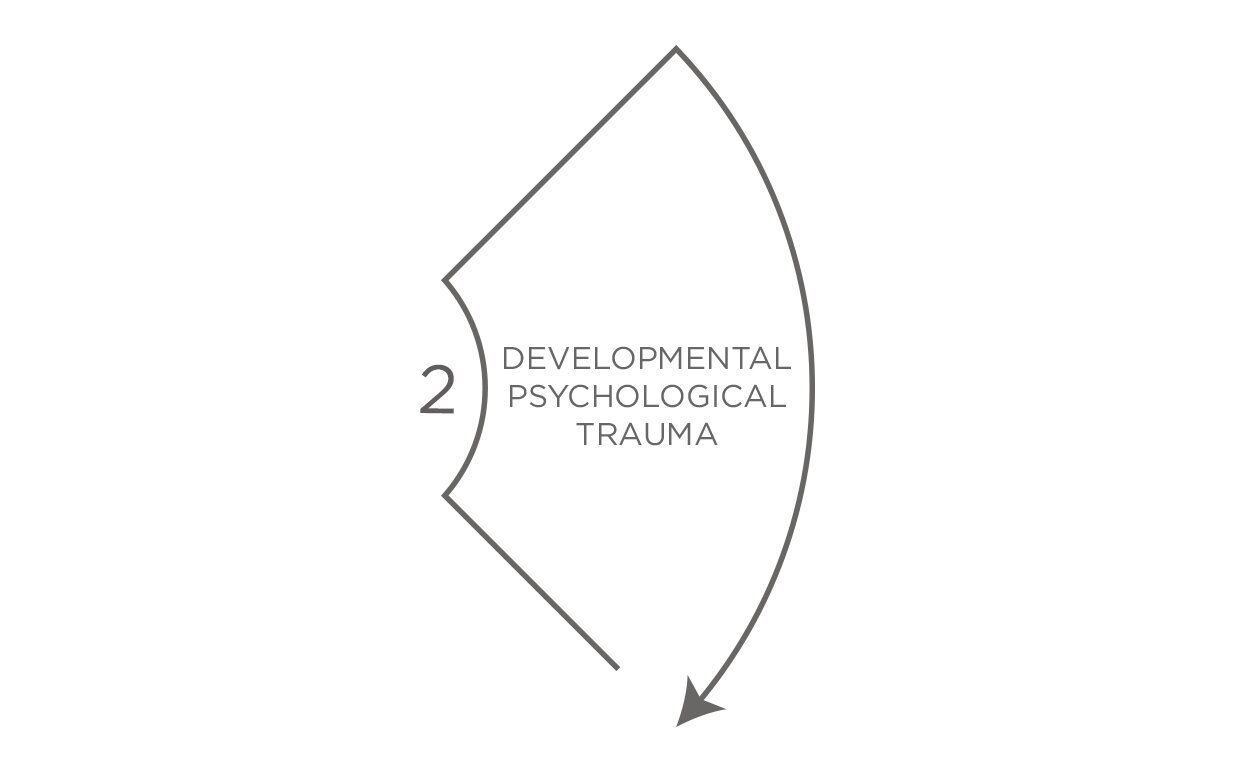
The Problem: The Cycle of Sexual Exploitation
Untreated childhood abuse can cause trauma that lasts for generations
Every child is born into the world with hope and promise. Children need adults to navigate the different paths life can take. Children abused and exploited by adults are exposed to a particularly egregious part of our world. They require specialized care that takes into account the complex trauma that results from child sexual abuse and exploitation. They also need to know there are adults who care.
Child Sexual Abuse
Child abuse frequently goes unnoticed during childhood years, but can lead to further potential abuse, exploitation, and violence in the life of the individual child.
Approximately 25% of girls and 5% of boys report experiences of sexual abuse or assault prior to the age of 18. Child sexual abuse, in particular, has long-term consequences in the life of the individual survivor and the society, in general. Survivors of child sexual abuse suffer from depression, anxiety, post-traumatic stress, shame, and struggles in school. If the abuse is occuring within the family, the child risks losing family support. Survivors of child sexual abuse, often, suffer the physical and psychological trauma of sexual violations in silence.
We can become educated about the devastation of child sexual abuse so we can help survivors to heal in a more compassionate society.
Sexual Assault
Trends suggest declining overall child sexual abuse, but increasing sexual violence amongst teenagers by teenagers. Teenage years represent the time during which minors are most vulnerable to sexual violations. Perpetrators of teen abuse are, predominantly, other youth, thus, constituting experiences more commonly associated with sexual assault.
Child Sex Trafficking - Most sex trafficking begins in childhood
Child sex trafficking, or commercial sexual exploitation of children, is defined as “a commercial sex act is induced by force, fraud, or coercion, or in which the person induced to perform such act has not attained 18 years of age.
Child Cyber Sexual Exploitation
The internet increasingly serves as a means of connection for friends, loved ones, and would-be predators with vulnerable youth, especially during the pandemic. Learn more about this increasing threat to our children here: Child Cyber Exploitation
Interpersonal trauma occurring during childhood has a marked impact upon every aspect of a child’s development and life path. Most child victims of interpersonal trauma experience more than one form of abuse and/or neglect. The result of multiple forms of traumatic experiences in relationships is referred to as complex trauma.
Developmental psychological trauma is seen in many different ways, including difficulties with:
attention
depression
anxiety
fearfulness
dissociation
mistrust of others
acting out behaviors, etc
Specialized care and interventions with the trauma resulting from child sexual abuse and exploitation can help children to reclaim the path of healing and hope.
Further victimization and Trauma
Victims left on their own to deal with the trauma of sex abuse and assault are vulnerable to revictimization.
Sex Trafficking and Exploitation
Trafficking involves some form of exploitation of a vulnerable youth’s needs to survive. While physically coercive tactics may be involved, psychological manipulations in exploitative relationships can be just as powerful when used against youth who do not have means to fully care for themselves (e.g. obtain housing, earn a living wage, etc).
Sexual exploitation and trafficking survivors often have preceding experiences of child sexual abuse. Such adverse childhood experiences have long-term consequences. A single incident of victimization increases the likelihood of further victimization; the vast majority of children caught in the trap of trafficking have been traumatized not just once, but many times. These childhood trauma incidents are linked to a variety of health problems— physical, mental and neuro-cognitive— that appear throughout the lifespan and increase the likelihood of an early death.
Relational Difficulties
Sexual abuse and exploitation is one of the most troubling abuses of an intimate relationship between a trusted adult and a vulnerable child. These broken messages of relationships can translate into adult intimate relationships. This makes it tricky when a person wants to have a healthy, intimate relationship. Many feelings and memories can be triggered in intimate relationships.
Intimate Partner Violence
Intimate partner violence refers to violence within an intimate relationship. The term intimate partner, often referred to as “domestic violence” distinguishes this form of relational abuse from child abuse or elder abuse.
One in four women and one in ten men experience intimate partner violence.
Some types of human trafficking are, also, intimate partner violence.
Physical violence in intimate relationships also often includes sexual violence.
Children witnessing intimate partner violence between their parents are at risk for a generational cycle of relational violence. Child abuse is a risk factor for adult relationships that involve intimate partner violence.
Trauma is transmitted from parents to their children and their children without intervention.
The impact of trauma, if untreated, can be life-long and affect generations to come. Traumatized adults parenting through trauma can, often, miss the warning signs of danger and harmful relationships. Family therapy addressing abused and exploited children may need to include the trauma of the parent as well.
Reclaim13 views the problems of child sexual abuse and exploitation from a multi-generational, systemic lens which means we believe in the holistic healing of the family to support healthier families and the raising up of children who can grow up feeling safe and loved.




